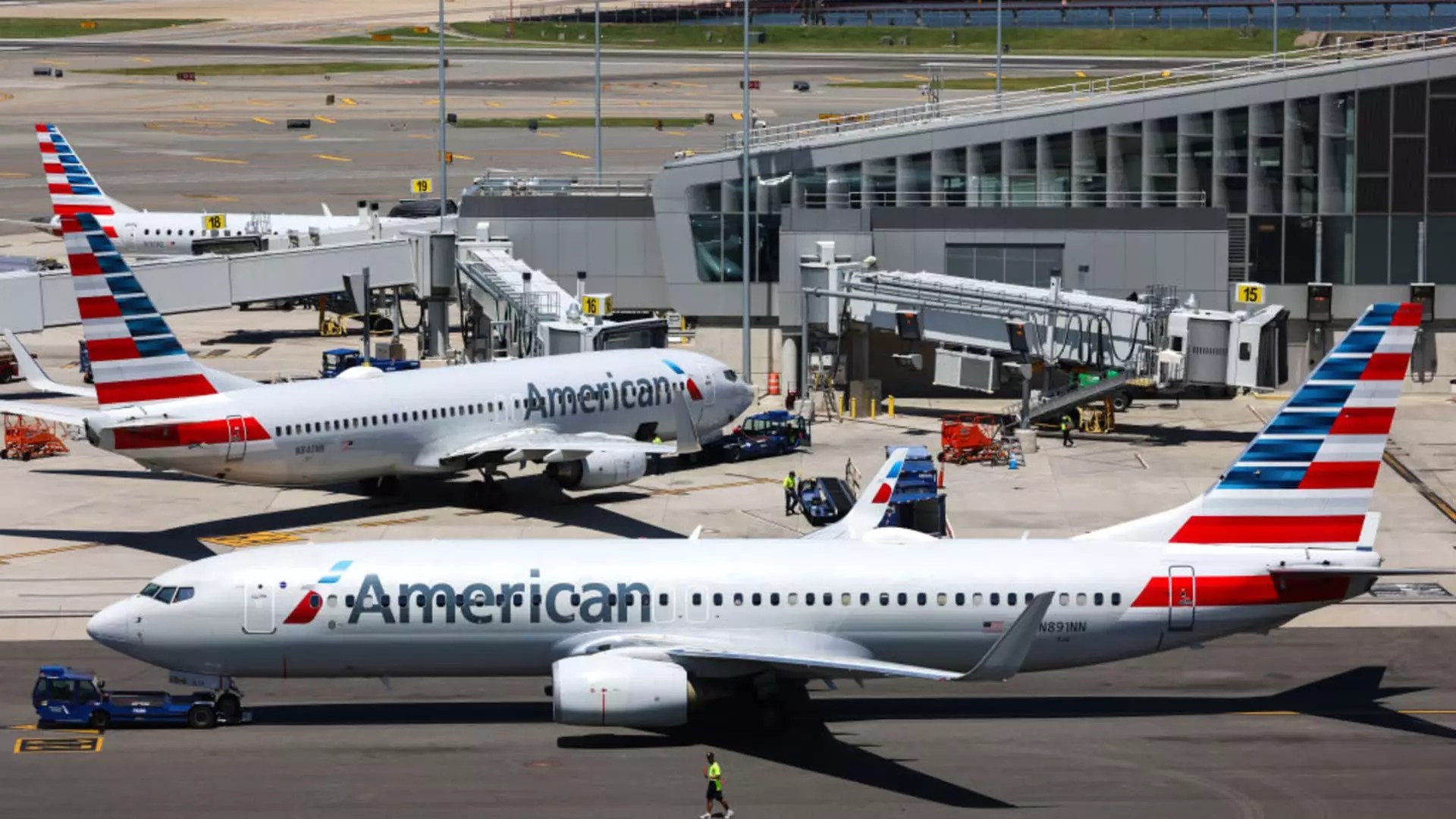In the world of consumer finance, co-branded credit card partnerships represent a complex and evolving segment. American Airlines, one of the largest carriers in the U.S., is reportedly in negotiations with Citigroup to establish a more exclusive relationship, ending its longstanding partnership with Barclays. This shift is poised to redefine the dynamics of American Airlines’ loyalty program, which has been a vital revenue stream, especially in a post-pandemic market where customer loyalty and spending behaviors are continuously changing.
The competitive nature of co-brand deals cannot be overstated. These arrangements allow financial institutions like banks and major retailers or airlines to share benefits, creating a symbiotic relationship that, when executed effectively, can lead to substantial profits for both parties. However, when renegotiation time arrives, the stakes are high. Brands are often in a position to negotiate for a larger share of revenue, especially given the evolving landscape of customer expectations and competitive pressures within the industry.
American Airlines aims to streamline its credit card operations by consolidating its partnership under a single issuer—Citigroup—instead of retaining multiple partners like Barclays. This strategic focus could lead to enhanced efficiencies, greater brand coherence, and the potential for increased earnings from its loyalty program. By working exclusively with one bank, American Airlines could potentially reap higher revenues generated from loyalty miles earned through credit card purchases.
The case for exclusivity is strengthened when considering how airlines navigate through volatile economic climates. The pandemic served as a stark reminder of the importance of loyalty programs for airlines, as consumer spending on credit cards did not diminish in the way physical travel did. Therefore, the ability to foster a robust partnership with a single issuer like Citigroup could fortify American Airlines’ financial footing, helping it to better weather economic downturns.
American Airlines’ negotiations with Citigroup come at a time when competition within the banking and airline sectors continues to intensify. In a recent assessment, Delta Airlines reported impressive revenue generated from its partnership with American Express, pulling in nearly $7 billion compared to American’s $5.2 billion from its co-branding with Barclays. This disparity highlights the need for American Airlines to secure a more lucrative deal and send a message to the market that it too can drive significant revenue through credit card partnerships.
Citigroup’s competitive edge lies in its existing customer base. With a focus on affluent, high-spending clientele, nurturing a relationship with American Airlines could prove beneficial in developing innovative loyalty offerings that attract even more high-value customers. Such a partnership would likely hinge on leveraging customer data more effectively to tailor marketing strategies, ensuring that both parties can navigate the changing demands of consumers.
Nevertheless, American Airlines’ plans to partner exclusively with Citigroup may face hurdles, particularly concerning regulatory approval. The scrutiny exercised by entities like the U.S. Department of Transportation could introduce further delays into the negotiation process or even derail the prospective deal altogether. The highly regulated nature of the financial industry means that significant partnerships are often put under the magnifying glass to ensure fair practices and competitive integrity remain intact.
In this context, the partnership with Citigroup might seem advantageous, but it could also face considerable pushback, particularly if concerns arise about market consolidation and potential impacts on customers. American Airlines must remain vigilant to navigate these complexities as it seeks to finalize the deal.
As American Airlines potentially pivots away from Barclays, the latter is not standing still. Barclays’ leadership has acknowledged the need to diversify its portfolio. By stepping back from reliance on airline partnerships, Barclays aims to strengthen its positioning through more retail and tech-based alliances. This strategic pivot signifies how banks are reevaluating their roles in co-branded credit card programs amidst tightening margins and evolving consumer behaviors.
Overall, the developments between American Airlines and Citigroup encapsulate the changing landscape of loyalty partnerships. The negotiations are not merely transactional but reflect deeper economic strategies that could redefine revenue streams for the airline industry in the coming years. As both companies navigate these waters, the overarching goal remains clear: to enhance customer experiences while maximizing financial profitability in an ever-competitive marketplace.


Leave a Reply